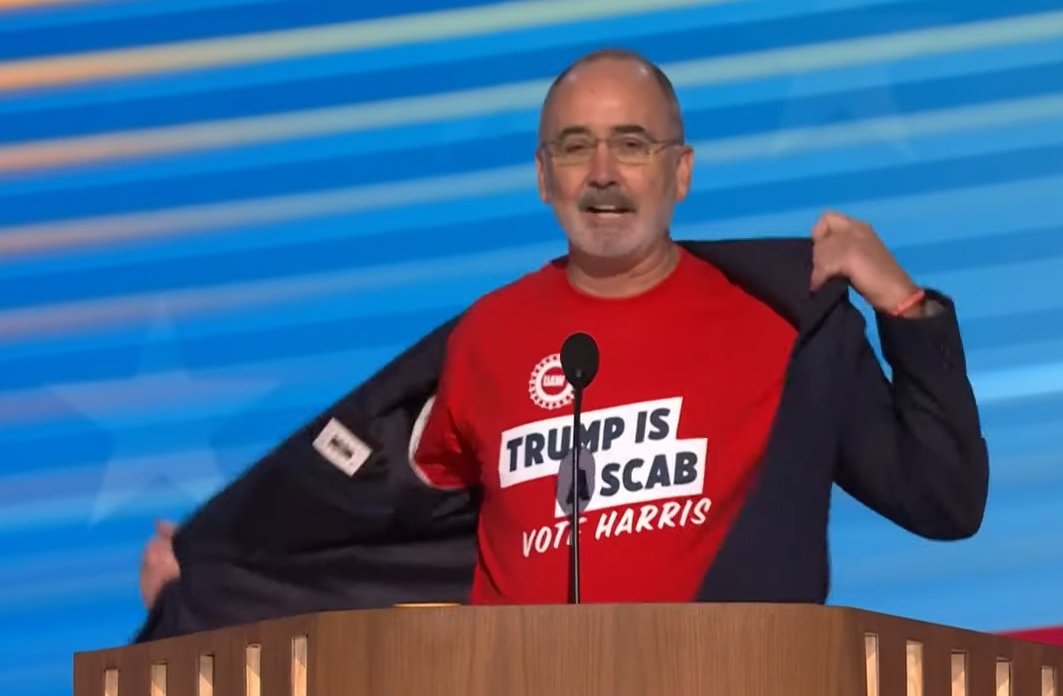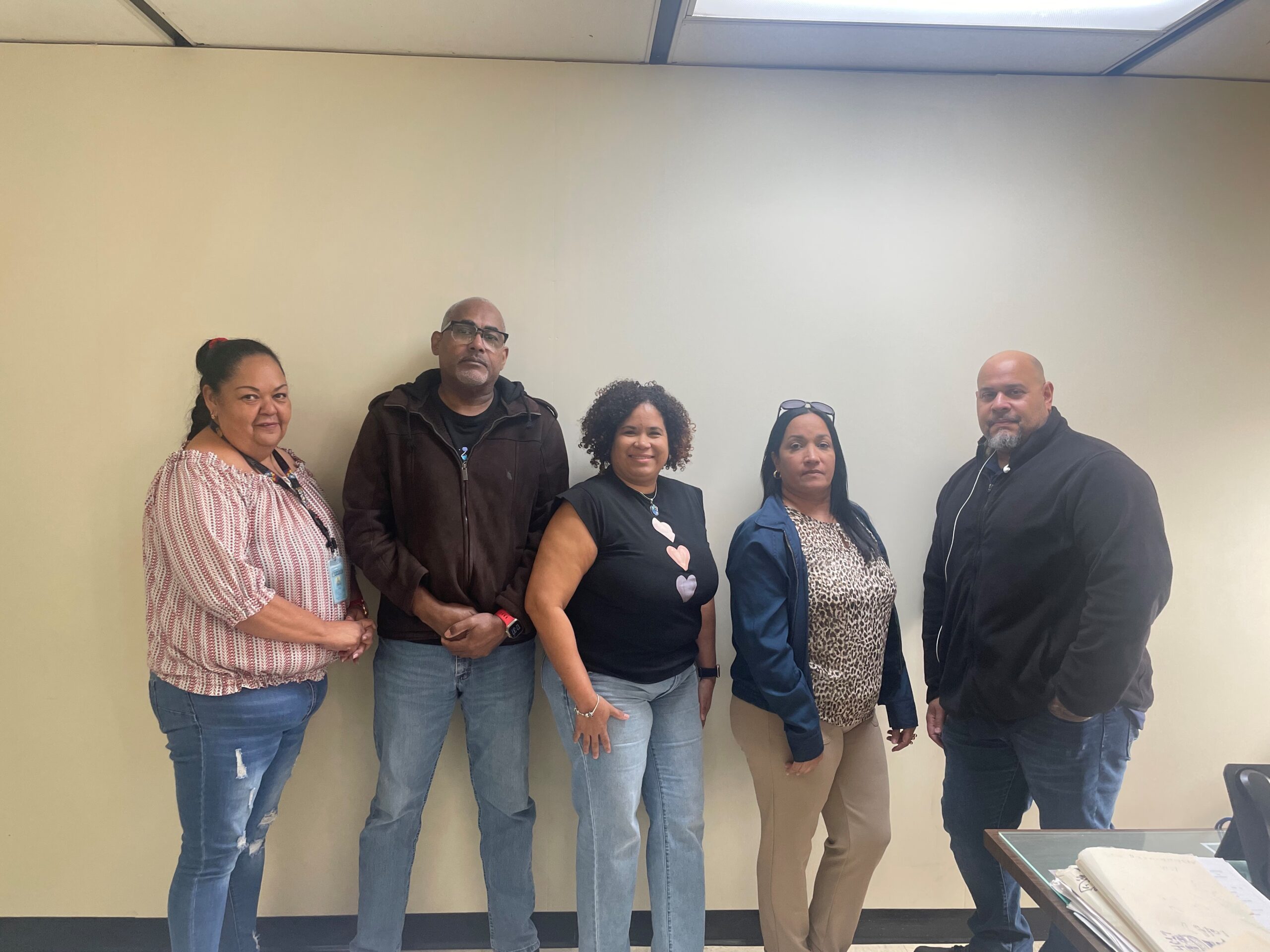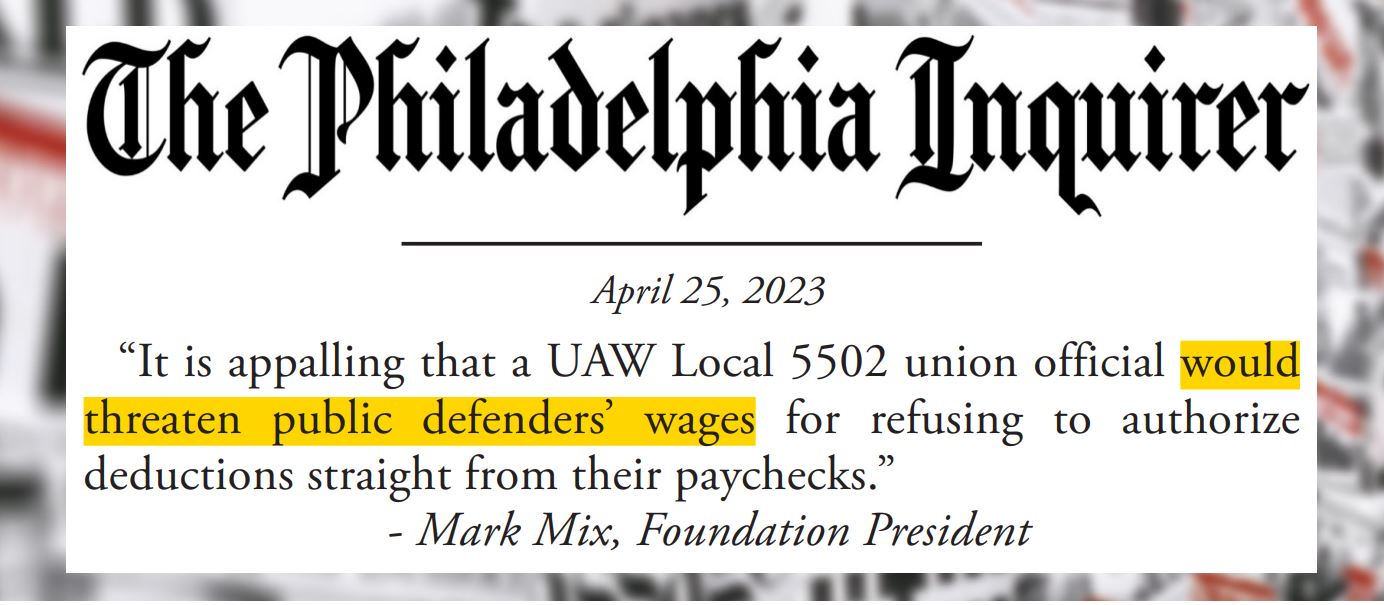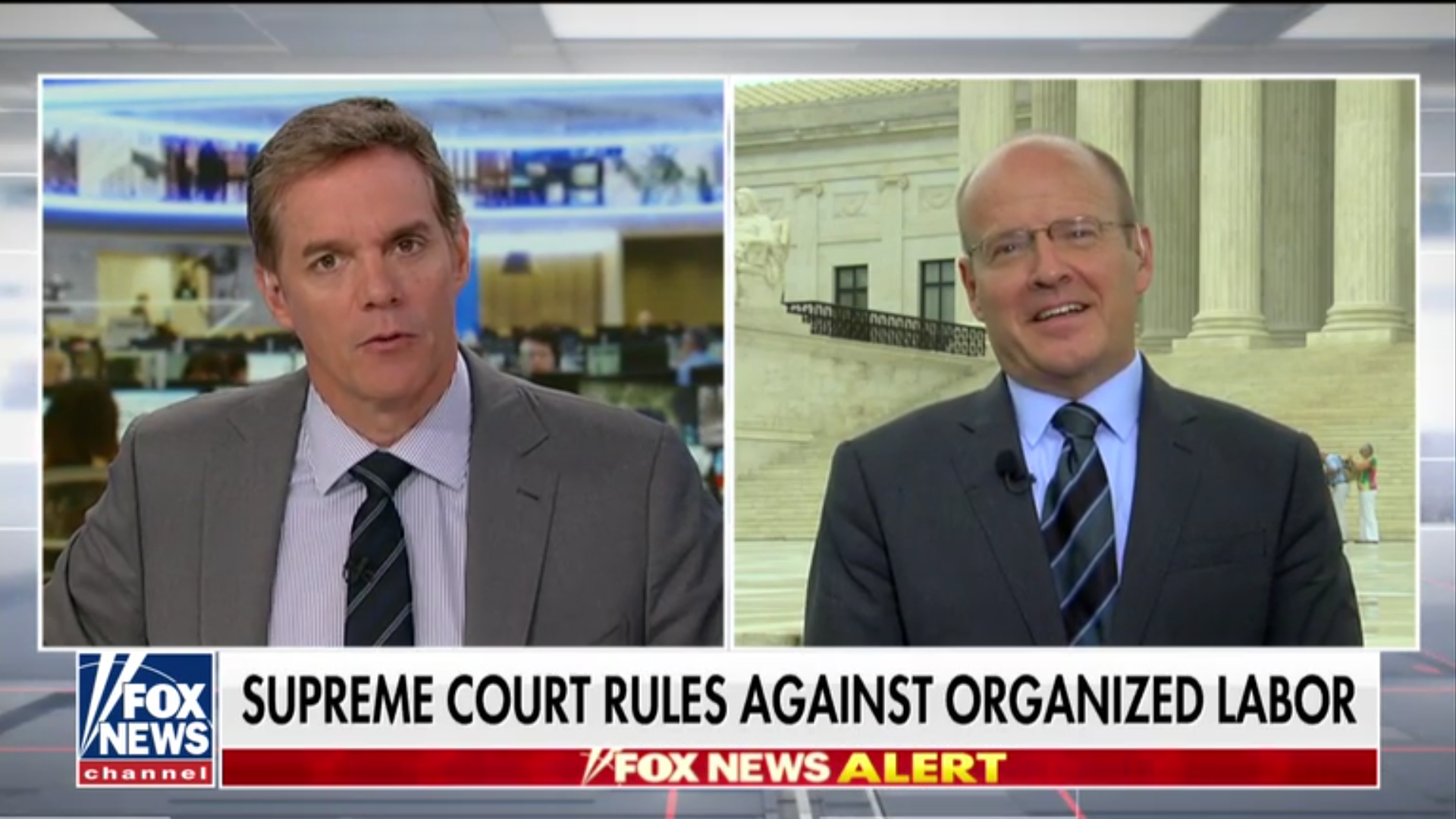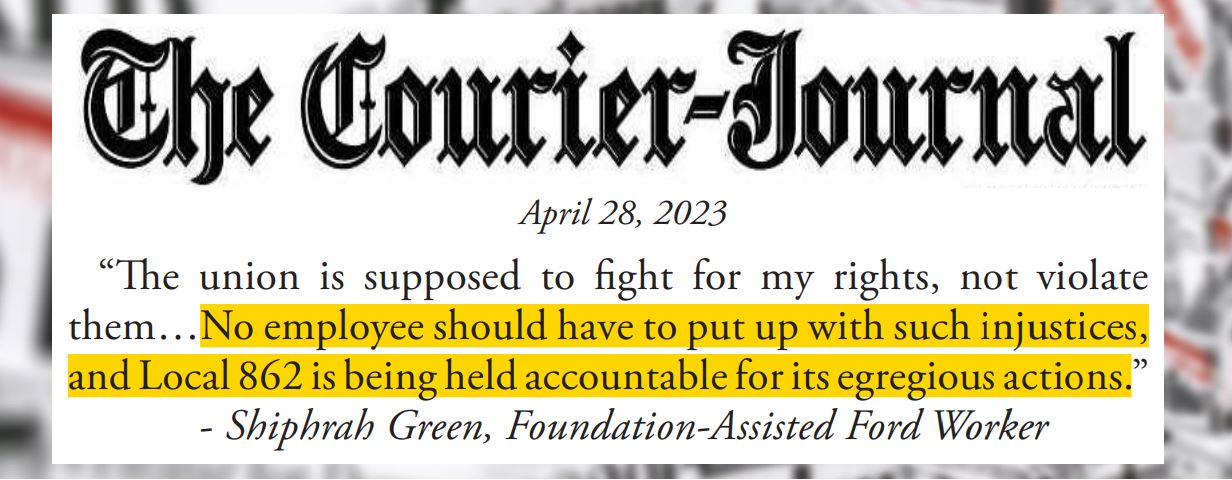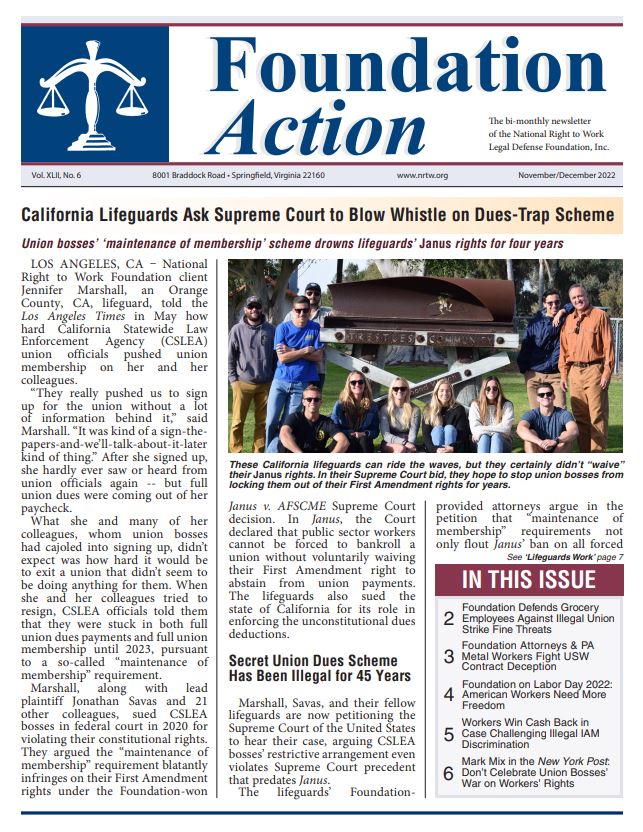Philly-Area Manufacturing Employees Triumph Over UAW Intimidation Campaign
The following article is from the National Right to Work Legal Defense Foundation’s bi-monthly Foundation Action Newsletter, January/February 2025 edition. To view other editions of Foundation Action or to sign up for a free subscription, click here.
UAW bosses now required to attend federal training after trying to fire non-striking workers
Despite an active federal corruption investigation, UAW President Shawn Fain and his underlings continue to push a radical political agenda using workers’ dues money while ignoring the rights of the rank-and-file employees union bosses claim to “represent.”
PHILADELPHIA, PA – It’s not particularly difficult to see why United Auto Workers (UAW) union officials are having trouble convincing workers that the union has their best interests in mind.
The union’s upper echelon is still reeling from a federal probe that hit about a dozen top union bosses with prison sentences for embezzling workers’ dues, and to this day it appears that UAW President Shawn Fain — a so-called “reformer” — is being scrutinized by federal monitors for manipulating his position to secure personal benefits.
But the corruption within the UAW goes far beyond the union’s top executives. Throughout 2024, National Right to Work Foundation-backed workers for auto accessory manufacturer Dometic fought illegal UAW demands that they strike or be fired.
UAW Union Used Mass Texts, Social Media to Bully Workers
In March 2024, seven Philadelphia-area Dometic employees filed unfair labor practice charges against the UAW Local 644 union, detailing that UAW bosses had ordered a strike and threatened to get fired anyone who decided to keep working.
Despite the employees’ resignation of their union memberships, UAW officials began internal proceedings against each of them soon after the strike began. Federal labor law forbids unions from imposing internal discipline on those who abstain from union membership.
The Dometic workers didn’t back down. With free Foundation legal aid, all the workers won settlements in October 2024 that fully vindicated their rights. UAW officials must now make postings correctly informing workers of their right to abstain from union activities, and the settlement even requires union chiefs to undergo mandatory training on the limits of “a union’s right to impose internal discipline,” among other topics.
As the workers’ legal battle dragged on, the Dometic workers continued to expose ugly details of the UAW’s intimidation campaign surrounding the strike. In April 2024, Dometic employee Mario Coccie filed a second round of charges against UAW Local 644 for a mass text message that threatened all Dometic employees — not just those who had filed charges against the union — with termination if they didn’t strike.
“The information in this text reveals union officials’ real intentions, which is to hurt anyone willing to stand up for themselves,” said Coccie at the time. “What is happening in this case is completely unjust.”
UAW officials also refused to respect Coccie and his coworkers’ rights under the Foundation-won CWA v. Beck Supreme Court decision, which prohibits union officials from requiring workers to pay for the union’s political expenditures just to keep their jobs. Because Pennsylvania lacks Right to Work protections for its private sector workers, UAW bosses can force workers to pay union fees as a condition of employment, but must abide by Beck.
Legal Privileges Enable UAW Corruption
In addition to the notice postings and required training, the Foundation-won settlement orders union officials to delete social media posts threatening workers who refused to strike.
“We’re proud to have helped Mario Coccie and his coworkers vindicate their rights,” commented National Right to Work Foundation Vice President Patrick Semmens. “But it has become all too clear that union corruption — which can take the form of anything from stealing millions in worker dues to intimidating workers to join a picket line — is only made easier when union bosses are granted more legal privileges.
“Policymakers need to protect workers’ freedom to cut off funding for union bosses who don’t serve their interests, and to fully abstain from union activities that individual employees do not see as in their own best interest,” Semmens added.
AT&T Workers Nationwide Win Challenges to Unionization Imposed Through Card Check
The following article is from the National Right to Work Legal Defense Foundation’s bi-monthly Foundation Action Newsletter, November/December 2024 edition. To view other editions of Foundation Action or to sign up for a free subscription, click here.
Victories by AT&T workers in five states preceded Biden-Harris NLRB rule change to block secret ballot votes
See You, CWA: Marquita Jones (left), Samantha Cain (middle), and Matthew Gonzalez rallied their fellow AT&T workers to escape unwanted CWA unions.
WASHINGTON, DC – While the Biden-Harris National Labor Relations Board (NLRB) sought to upend NLRB rules designed to protect workers’ ability to vote out unwanted unions, AT&T workers across the country won a series of victories highlighting the importance of allowing workers to challenge coercive union card check unionization with secret ballot votes. The decertification victories all relied on the National Right to Work Foundation-backed 2020 NLRB “Election Protection Rule” (EPR), which was formally eliminated by the Biden-Harris Labor Board in September.
In five separate cases covering well over 1,000 workers, AT&T Mobility employees have successfully overturned Communications Workers of America (CWA) unionization imposed through the notorious “card check” process.
Under card check, union organizers bypass the secret ballot election process and instead collect cards face-to-face from employees that are then counted as “votes” for the union. Without the privacy of a secret ballot vote, many workers report being pressured, bullied, or threatened into signing, which is among the reasons why card check has long been recognized as inherently unreliable and abuse-prone.
Foundation-Backed 2020 Rule Let Over 1,000 AT&T Workers Nix Union Card Checks
The 2020 Election Protection Rule reformed several rules that union officials manipulate to trap workers under monopoly “representation,” including by giving employees a way to challenge card check unionization with a secret ballot election. Foundation staff attorneys assisted AT&T employees in five states to do that in advance of the Biden-Harris Labor Board’s cynical repeal of the rule.
First, in Tennessee, AT&T employee Denis Hodzic filed a petition signed by two-thirds of his coworkers in the unit seeking a secret-ballot vote to remove the CWA union, after CWA agents installed themselves over 100 AT&T In-Home Experts by card check. Initially CWA union officials argued the election should be permanently blocked because the union had already merged the workers into a larger bargaining unit with thousands of other AT&T workers.
CWA Bosses Capitulated to AT&T Workers
However, citing the Election Protection Rule, which gives workers at least 45 days to challenge a card check with a decertification petition, Foundation staff attorneys were able to win a ruling with the NLRB allowing the vote to proceed. At that point CWA officials chose not to even contest the vote, instead filing paperwork with the NLRB freeing the employees from CWA ranks apparently to avoid an overwhelming final vote against the union.
“The Election Protection Rule was essential for us to rely on as we went through the process of seeking resolution to our tricky situation,” Hodzic said of his situation. “The 45-day petition window needs to remain regardless of which group holds the majority position in Washington.”
Since then, with legal aid, around 1,000 additional AT&T Mobility employees in California, Louisiana, Mississippi, and Texas have all also successfully removed the CWA union following installation through card check. In all four states, once the decertification vote became inevitable, CWA officials simply conceded defeat rather than wait for the results of a formal decertification vote.
NLRB Repeal of Election Protection Rule Traps Workers in Union Ranks
Despite these efforts from independent-minded employees, the Biden-Harris NLRB formally repealed the Election Protection Rule in September, dramatically expanding union bosses’ ability to block employee-requested decertification votes.
As a result, now, when workers in Hodzic’s situation attempt to challenge a card check with a secret ballot decertification, the NLRB will automatically block their vote for up to one year after a card check, which opens the door to countless other union delay tactics.
“If these AT&T employees had filed their five decertification petitions after September 30th, they would have been trapped in a union they oppose for years and likely forever,” commented National Right to Work Foundation Vice President Patrick Semmens.
“This is yet another example of the Biden-Harris NLRB steamrolling the rights of independent-minded employees, so union bosses can expand their forced dues ranks. “Despite this setback for employee freedom, Foundation staff attorneys remain committed to helping workers trapped in union ranks they oppose,” added Semmens. “That includes helping them navigate the increasingly rigged NLRB system.”
Puerto Rico Police Bureau Employees Foil Anti-Janus Scheme
The following article is from the National Right to Work Legal Defense Foundation’s bi-monthly Foundation Action Newsletter, November/December 2024 edition. To view other editions of Foundation Action or to sign up for a free subscription, click here.
Federal court strikes down discrimination against workers at the Puerto Rico Police Bureau who exercised First Amendment rights
Vanessa Carbonell (center) and other employees of the Puerto Rico Police Bureau won big at the Puerto Rico District Court in September 2024. Their Foundation-won decision forces their employer and the union to stop violating their Janus rights.
SAN JUAN, PR – The National Right to Work Foundation’s 2018 victory at the U.S. Supreme Court in Janus v. AFSCME opened new horizons for employee freedom across the country. For the first time, the Justices recognized that the First Amendment prohibits union bosses from forcing public sector employees to join a union or pay dues as a condition of employment, and that union bosses can only take dues from a worker’s paycheck with their affirmative consent.
Foundation attorneys’ efforts to enforce the landmark decision yielded a big victory this September for a wide swath of civilian employees at the Puerto Rico Police Bureau (PRPB). In a class action federal lawsuit, more than a dozen PRPB employees charged officials of the Union of Organized Civilian Employees with violating their Janus rights by stripping them of an employer-provided health benefit because they refused to join the union.
A recent decision from the District Court of Puerto Rico found in favor of the employees’ arguments, stating that their employer had indeed taken away the health benefit because the employees exercised their right to not join or pay dues to the union.
Scheme Forced Workers to Join Union or Lose Access to Better Healthcare
“This is either retaliation for exercise of non-union members’ post-Janus non-associational rights under the First Amendment under the Constitution or simply discrimination,” said the Court.
According to lead plaintiff Vanessa Carbonell and her colleagues’ original lawsuit, they all exercised their Janus right to opt out of the union at various points after the 2018 Janus decision. They each began noticing that as dues ceased coming out of their paychecks, they also stopped receiving a $25-a-month employer-paid benefit intended to help employees pay for better health insurance.
The lawsuit demonstrated that PRPB officials cut the benefit off to employees who refused union membership — a clear case of discrimination against employees who exercise their First Amendment right to abstain from union affiliation.
Union and Employer Must Stop Discrimination
The District Court’s decision, in addition to declaring that the ploy by PRPB and the Union of Organized Civilian Employees is unconstitutional, orders an injunction to stop PRPB officials from continuing to withhold the benefit from Carbonell and other employees.
“Janus enshrined a very simple First Amendment principle: That union officials need to convince public employees to support their organization and activities voluntarily,” commented National Right to Work Foundation Vice President Patrick Semmens.
Philly Public Defender Beats Illegal UAW Dues Deduction Scheme
The following article is from the National Right to Work Legal Defense Foundation’s bi-monthly Foundation Action Newsletter, September/October 2023 edition. To view other editions of Foundation Action or to sign up for a free subscription, click here.
UAW boss threatened to reduce workers’ wages for not signing dues card
Philly Public Defender Brunilda Vargas surely didn’t feel “represented” by UAW bosses when they sought to reduce her and her colleagues’ pay just for not signing dues cards. Mark Mix expressed the outrageousness of this scheme to The Philadelphia Inquirer.
PHILADELPHIA, PA – Brunilda Vargas, a public defender for the City of Philadelphia, staunchly objected when United Auto Workers (UAW) Local 5502 union bosses sought to gain power over her and her colleagues at the Defender Association of Philadelphia.
After UAW union officials were installed in her workplace, things only got worse for her. A UAW union official threatened Vargas and her coworkers that, if they didn’t sign cards authorizing the direct deduction of union dues from their paychecks, their wages would be reduced. This threat was a blatant violation of federal law.
Vargas challenged UAW officials’ illegal demands with free legal aid from the National Right to Work Legal Defense Foundation. Union bosses quickly backed down, and in June entered into a settlement approved by National Labor Relations Board (NLRB) Region 4 which fully vindicates Vargas’ and her coworkers’ rights.
Public Defender Hits UAW with Federal Charges Following Intimidation
On April 18, 2023, Vargas filed her federal unfair labor practice charge with NLRB Region 4 for the threats made against her and her colleagues at the Defender Association of Philadelphia. UAW officials issued these threats against public defenders who chose not to sign automatic dues deduction authorization forms.
Even though Vargas works in the non-Right to Work state of Pennsylvania and can be forced to pay some union dues as a condition of employment, federal law prohibits forcing workers to authorize automatic dues deductions from their paychecks. Had Vargas lived in a Right to Work state, not only would she have the right to refrain from automatic dues deductions from her paycheck, but she could also refrain from financially supporting the union altogether. In Right to Work states, workers are fully protected from mandatory union membership and financial support, both of which must be completely voluntary.
Settlement Forces Union Bosses to Fully Abandon Illegal Threats
Now, pursuant to settlements, the UAW must email and post notices informing workers that the union will not work with the workers’ employer to reduce wages of nonmembers that do not sign automatic dues deductions forms. The union must also not suggest failure to sign a dues deduction card could lead to a worker’s termination. Finally, the union must not coerce or restrain individuals from expressing their rights under Section 7 of the National Labor Relations Act.
“[UAW] will not threaten objecting non-members that we will notify the Employer it can seek refunds of their contractual salary increases if they do not sign a dues deduction authorization form. Neither employees nor members are legally required to execute a dues deduction authorization form,” the notice reads.
“While we are happy that we were able to help Vargas and her coworkers fight UAW misconduct, this instance is but the tip of the iceberg when it comes to UAW malfeasance,” commented National Right to Work Foundation Vice President Patrick Semmens. “The recent federal probe into UAW officials stealing and misusing workers’ money has sent multiple top UAW bosses to jail, and uncovered a shocking culture of contempt for workers’ rights.”
“Fortunately, the numerous victims of UAW boss abuses need not fight alone,” continued Semmens. “They have an ally in the National Right to Work Foundation.”
After Janus, Foundation Continues Fight to Expand Freedom for Public Employees
The following article is from the National Right to Work Legal Defense Foundation’s bi-monthly Foundation Action Newsletter, September/October 2023 edition. To view other editions of Foundation Action or to sign up for a free subscription, click here.
Building off Janus, CUNY professors’ lawsuit could end forced ‘representation’ powers
The Foundation’s historic Janus victory was a serious blow to public sector union bosses’ coercive power in its own right. But it also opened the door for efforts to free public workers completely from forced dues and forced representation.
NEW YORK, NY – Up until 2018, union bosses had the power to force millions of government workers to pay union dues or fees just to keep their jobs. While such an enormous privilege was not only a gross violation of workers’ free association rights, it also provided a steady stream of forced dues to union bosses, which contributed to their outsized influence over the government and our political system.
Union officials’ forced-dues power over public sector workers crumbled on June 27, 2018, when National Right to Work Foundation staff attorneys won the landmark Janus v. AFSCME decision at the U.S. Supreme Court. A majority of the Justices agreed with Foundation attorneys that every American public sector worker has a First Amendment right to abstain from paying dues to an unwanted union.
On the fifth anniversary of Janus, its impact can’t be overstated. Between the Janus decision itself and over 50 follow-up cases, Foundation staff attorneys have enforced the rights of over 500,000 employees nationwide. Meanwhile, studies find that independent-minded workers are withholding over $700 million in formerly mandatory dues and fees from public sector union bosses every year as a result of the decision.
Of course, Foundation staff attorneys continue to fight to defend, enforce, and expand on the landmark decision.
New Challenge to Forced ‘Representation’ Reaches Court of Appeals
In an ongoing Foundation-assisted case, Goldstein v. Professional Staff Congress (PSC), six City University of New York (CUNY) professors seek to knock down the final pillar of coercive union power in the public sector — union bosses’ power to force their one-size-fits=all “representation” on workers who don’t want it.
A brief recently filed at the Second Circuit Court of Appeals for the professors argues that PSC union officials are violating the professors’ First Amendment rights by forcing them to accept the union’s monopoly control and “representation.”
Professors’ Lawsuit: Janus Already Noted Dangers of Monopoly Bargaining
The professors have found the actions of PSC union bosses and adherents to be “anti-Semitic, anti-Jewish, and anti-Israel,” and have even reported union-instigated bullying and threats targeted against them.
The professors’ opening brief at the Second Circuit maintains that the Supreme Court already acknowledged in the Janus decision that public sector monopoly bargaining is “a significant impingement on associational freedoms,” and argues that New York State’s Taylor Law authorizes such bargaining in violation of workers’ rights.
“If the First Amendment prohibits anything, it prohibits the government from dictating who speaks for citizens in their relations with the government,” reads the brief.
The case, which will likely head to the U.S. Supreme Court no matter how the Circuit Court rules, could set a nationwide precedent forbidding public sector monopoly bargaining, just as Janus prohibits forced dues in all public sector workplaces. The combination of both Foundation-won precedents would guard public workers nationwide from both forced dues and forced representation.
Foundation Brief Defends State Law to Fortify Janus
The Janus victory also motivated freedom-loving state legislators to take extra measures to ensure workers’ First Amendment rights under Janus are being enforced.
In Indiana, a reform now forbids public employers from using taxpayer-funded government payroll systems to deduct union dues without a worker’s explicit consent. Public employers must obtain yearly consent from workers who wish to have union dues taken from their paychecks, and must also ensure that workers have notice of their constitutional right not to fund union activities. Unsurprisingly, dues-hungry Anderson Federation of Teachers (AFT) union officials sued the state to block these commonsense protections.
Foundation attorneys joined the fight recently to defend Indiana’s laws. A Foundation brief in the Seventh Circuit Court of Appeals urges the court to overturn a lower court’s injunction of these reforms, citing Seventh Circuit precedent.
Foundation attorneys helped successfully defend a similar law in West Virginia in 2021, which the West Virginia Supreme Court upheld on the basis that union bosses “have no constitutional entitlement to employees’ money or to the employer’s administration of union dues deduction schemes.”
Federal Courts Must End Union Monopolies
“Janus was a great triumph for American public workers’ freedom, but it was only a step toward the ultimate goal of freeing public workers from all unwanted union coercion,” commented National Right to Work Foundation Vice President Patrick Semmens. “No American worker should be forced to associate with union officials and union members that openly oppose their interests, including through attacks on their culture and religion as the plaintiffs in Goldstein have harrowingly experienced.”
“It’s encouraging to see that states like Indiana have stepped up to protect workers’ Janus rights,” Semmens added. “But ultimately, after recognizing in Janus and older precedents that union monopoly bargaining abridges workers’ free association rights, it’s high time for federal courts to end this enormous government-granted power for union bosses once and for all.”
Foundation-Backed Workers Notch Victories Over Dues-Hungry UAW Bosses
The following article is from the National Right to Work Legal Defense Foundation’s bi-monthly Foundation Action Newsletter, July/August 2023 edition. To view other editions of Foundation Action or to sign up for a free subscription, click here.
UAW caught using threats and coercion to illegally seize workers’ dues
Ford employee Shiphrah Green excoriated UAW bosses in the Louisville Courier Journal over their blatant disregard for her rights. Foundation attorneys are helping her and others battle the notoriously corrupt union.
LOUISVILLE, KY – United Auto Workers (UAW) union officials have a well-deserved reputation for looking out for their own interests while throwing rank-and-file workers under the bus. The most prominent recent example is the corruption and embezzlement scandal, in which federal investigators revealed that UAW officials had siphoned millions of dollars in workers’ money to fund opulent golf vacations in luxury condos and private villas, spa and amusement park visits, $60,000 cigar-buying sprees, and much more.
But the federal corruption probe that led to eleven top UAW bosses pleading guilty, including former union presidents Gary Jones and Dennis Williams, is hardly the only time greedy UAW bosses abused their government-granted monopoly bargaining powers.
In a series of recent cases brought by National Right to Work Foundation staff attorneys against the UAW, workers are utilizing the Foundation’s free legal aid to vindicate their rights in the face of illegal dues demands by UAW officials.
Foundation-won Settlements Force UAW to Return Money to KY, IA Workers
Shiphrah Green, an employee of Ford Motor Company’s Louisville Assembly Plant, prevailed over UAW Local 862 bosses with free Foundation legal aid in April. UAW bosses were forced to settle and return money they had unlawfully taken from Green’s pay.
Green’s federal charges against the union maintained not only that UAW officials had made her jump through unnecessary hoops to exercise her right to cut off union dues, but also that UAW bosses made threats against her job when she tried to resign, with one union official warning her “if it were up to me, you’d lose your job for leaving the union.” Green’s settlement also forced UAW officials to refrain from such illegal threats in the future.
Meanwhile in Iowa, four employees of air filter manufacturer Donaldson won a recent settlement in which UAW officials were required to return over $1,000 in illegally-seized dues.
In each Donaldson worker’s case, UAW bosses had either refused to stop dues deductions despite producing no original documentation showing the workers had consented to such deductions in the first place, or had kept seizing money after an employee resigned union membership and revoked authorization to deduct dues, which should have been effective in stopping the flow of dues.
Because Ms. Green and the Donaldson workers reside in Right to Work states, the Foundation-won cases mean they will be free from all union financial support going forward.
Philly Public Defender Hits UAW with Charges
Even in non-Right to Work states where union officials have the power to compel workers to pay some fees under threat of termination, UAW bosses still go far beyond what is legal in their greedy forced-dues demands.
For example, Foundation staff attorneys recently filed a case for Philadelphia public defender Brunilda Vargas. Vargas, a vocal opponent of the UAW’s unionization drive, was told by UAW organizers that the union would reduce her and her coworkers’ wages if they did not grant the union the power to automatically deduct union dues directly from their paychecks.
Not only is the threat illegal, but further, employees can never be required to authorize automatic dues deductions from their paychecks under long-established federal law. This is true even in a state like Pennsylvania where workers lack the protection of a Right to Work law. Vargas’ charge, filed in June, is now being investigated.
“American workers likely have a plethora of reasons for wanting nothing to do with UAW union officials, including but not limited to the dizzying corruption in the union that has led to so many union officials going to prison,” commented National Right to Work Foundation Vice President Patrick Semmens. “As Foundation attorneys have experienced, UAW officials will often resort to clearly illegal methods to squeeze money out of dissenting workers in violation of federal law.”
“Union bosses who cannot convince workers to pay union dues voluntarily should not be allowed to seize union dues under threat of termination,” Semmens added.
Foundation Slams NLRB, ILA Union Officials in Brief to Fourth Circuit Court
The following article is from the National Right to Work Legal Defense Foundation’s bi-monthly Foundation Action Newsletter, July/August 2023 edition. To view other editions of Foundation Action or to sign up for a free subscription, click here.
Foundation defends union-free SC port workers who would lose their jobs under NLRB ruling
Foundation staff attorneys are fighting to ensure that Charleston’s state-of-the-art Hugh K. Leatherman Terminal doesn’t become a safe harbor for ILA union bosses’ anti-worker schemes.
CHARLESTON, SC – National Right to Work Foundation staff attorneys have joined the fight against the International Longshoremen’s Association (ILA) union’s ongoing gambit to idle Charleston’s state-of-the-art Hugh K. Leatherman Terminal if the union can’t get control of all jobs at the facility.
Hostile Union Power Play Seeks to Put Non-Union Workers Out of Job
The Foundation recently filed a legal brief with the Fourth Circuit Court of Appeals in the case South Carolina Ports Authority (SCPA) v. National Labor Relations Board (NLRB). In the case, the SCPA is challenging the Biden NLRB’s ruling permitting ILA union bosses to file multi-million-dollar lawsuits against any cargo carrier that docks at Leatherman until the union gains control of all crane lift equipment jobs at the facility.
Since its opening in March 2021, some of the work at Leatherman Terminal has been performed by non-union state employees, some of whom have worked for the SCPA for years. The brief argues that if ILA union bosses’ power grab succeeds, it will “cause grievous harm to 270 State port workers and their families.”
The Foundation “submits this brief to provide a voice for the otherwise voiceless non-union State employees, and to give the Court a unique perspective on the stakes involved for those workers and their families,” the brief states. The brief highlights the dire consequences of the ILA maneuver for control of Leatherman’s 270 employees, who are otherwise protected by state law from monopoly union control.
According to the brief, South Carolina spent over $1 billion to develop the terminal, but due to the ILA’s power grab “the only way for South Carolina’s $1 billion Leatherman Terminal to be usable would be for the State to turn the facility over to a private employer with an ILA contract and discharge the 270 State employees.” The devastating effects for current employees and their families wouldn’t stop there if the ILA is victorious in the case. Even if the fired state workers were to seek new employment at Leatherman with a private contractor under the union’s control, the ILA union’s seniority provisions and hiring rules would likely bar them from being rehired.
ILA Union Officials Have History of Corruption
The attempt by ILA union officials to seek total control over workers at the Leatherman terminal is hardly the only underhanded tactic the ILA has been linked to. In 2022, the New York Daily News reported ILA chiefs negotiated “deals” where mob-linked longshoremen in New York and New Jersey could get paid for 27 hours of “work” per day.
“ILA union officials, with assistance from the NLRB, are directly working to destroy the livelihoods of these 270 South Carolinians,” commented National Right to Work Foundation Vice President Patrick Semmens. “The NLRB’s blatant disregard of the rights and wellbeing of workers and siding with union tyrants is outrageous.”
“The non-union port workers who have called Leatherman their workplace for over a decade must be protected,” added Semmens.
Teen Supermarket Cashier Fired for Refusing to Join and Fund UFCW Union
The following article is from the National Right to Work Legal Defense Foundation’s bi-monthly Foundation Action Newsletter, May/June 2023 edition. To view other editions of Foundation Action or to sign up for a free subscription, click here.
Union officials required teen to violate his religious beliefs or be fired
Josiah Leonatti may be young, but he’s not afraid to stand up to UFCW bosses, who got him fired over objecting to union membership and dues on religious grounds.
PITTSBURGH, PA – Josiah Leonatti, a high schooler, was fired last year for his religious beliefs. Giant Eagle and the United Food and Commercial Workers (UFCW) union compel employees, like Leonatti, to either join or fund the union to keep their jobs. The problem for Leonatti is that he cannot do so without compromising his religious beliefs.
When Leonatti was hired, he never expected that union bosses would force him to choose between his job and his religious convictions. But the union officials did just that.
With free legal aid from National Right to Work Foundation staff attorneys, Leonatti hit UFCW union officials and Giant Eagle in January with federal discrimination charges. Although Giant Eagle rehired Leonatti to limit liability, neither Giant Eagle nor the union agreed to accommodate his religious beliefs. So Leonatti faces discharge, again, unless he funds the union.
Moreover, the union demands that Leonatti submit to an illegal “religion test.” Before the company and union will consider accommodation, they demand that Leonatti answer irrelevant and inappropriate questions to determine whether his religious beliefs are valid.
UFCW Bosses Tried to Get Teen Fired After He Voiced Religious Objections
Foundation attorneys filed charges for Leonatti against the union at both the Equal Employment Opportunity Commission (EEOC) and the National Labor Relations Board (NLRB) based on federal law. Foundation attorneys also filed charges against Leonatti’s employer, Giant Eagle.
Federal law requires unions and employers to accommodate employees who have religious objections to joining or paying dues to a union. And federal law also prohibits forced union membership regardless of a worker’s reason for not wanting to affiliate with a union.
Leonatti’s charges report that he attended employee training last year as a cashier trainee. There, a store manager told new hires that they “must sign papers to join the United Food And Commercial Workers.” According to the NLRB charges, “No other options were even hinted at.”
After reviewing the papers with his family, Leonatti’s charges explain, he mailed a letter to UFCW officials detailing his sincere religious objections to joining and supporting the union. He also presented the same letter in person at training.
Rather than accommodate his religious beliefs as required by law, a company official “dismissed [Leonatti] from training and sent [him] home.” The same official later called Leonatti and told him that union membership is compulsory at Giant Eagle, and admitted the grocery store had terminated him over his refusal to join.
UFCW officials responded to Leonatti’s letter by mail on November 10, 2022, rejecting the written explanation of his religious objection and demanding he “complete its religious examination” before they even considered granting him an accommodation. Even if he passed this “test,” the charges say, union officials threatened that he would still have to pay an amount equal to full UFCW union dues to a charity approved by union bosses. Giant Eagle has not offered a religious accommodation to Leonatti, and the union has not retracted its threats or agreed to accommodate him.
Teen’s Firing Shows Need for Pennsylvania Right to Work Protections
Leonatti’s EEOC charges seek to compel the UFCW union and Giant Eagle to provide him a legally required religious accommodation. In addition, the NLRB charges state that relief must include unitwide notice and corporate training regarding workers’ right to refrain from union membership, among other remedies.
“Union bosses’ attempt to coerce a high school student to violate his religious beliefs is unconscionable and illegal,” commented National Right to Work Foundation Vice President Patrick Semmens. “We’re proud to support Mr. Leonatti as he defends his rights and beliefs. This should serve as a stark reminder that all Americans deserve Right to Work protections.”
“If Pennsylvania were a Right to Work state, Leonatti wouldn’t be forced to present his religious objections to expectedly hostile union chiefs,” Semmens added. “In a Right to Work state, he and other dissenting employees would have a statutorily protected right to cut off dues payments for any reason. All employees deserve the right to choose whether to fund a union.”
Virginia, Kentucky Workers Slam Union Officials with Charges for Illegal Dues Deductions
The following article is from the National Right to Work Legal Defense Foundation’s bi-monthly Foundation Action Newsletter, January/February 2023 edition. To view other editions of Foundation Action or to sign up for a free subscription, click here.
Union bosses seized full dues over employees’ clear objections, despite state Right to Work laws
“[I]t is time union officials accept that ‘no means no,’” said Buitoni employee Steven Ricketts, who is fighting to stop all dues as provided by Virginia’s Right to Work law.
DANVILLE, VA – For workers under the protection of Right to Work laws, union membership and financial support are supposed to be strictly voluntary. However, as recent cases brought with Foundation legal aid for workers in Kentucky and Virginia demonstrate, even in the 27 states that currently have Right to Work laws, union bosses will often attempt to illegally seize dues over workers’ objections.
“Living in Right to Work Virginia, it is outrageous that we need to take legal action just to stop union dues from being seized against our will,” commented Steven Ricketts, one of two employees at Buitoni Food Company who recently filed charges against United Steelworkers (USW) Local 9555. “I don’t want my money supporting the United Steelworkers union, and it is time union officials accept that ‘no means no’ when a worker resigns from the union and revokes their dues authorization.”
Ricketts and fellow employee Donald Hale each hand-delivered letters to both USW union officials and to their employer, formally resigning their union memberships and revoking their dues check-off authorizations.
Steelworkers Bosses Ignore 75-Year-Old Virginia Right to Work Law
After the workers’ letters were delivered, dues deductions briefly stopped only to quickly resume. In the case of Ricketts, Buitoni Food Company not only restarted union dues deductions but also deducted double the dues amount in a subsequent paycheck. Deductions from Mr. Hale’s paycheck also resumed without his authorization after a short period.
Mr. Ricketts sent an email to the company’s human resources department after the dues seizures restarted and was told to contact union officials about it. Each employee sent another letter to the United Steelworkers union, specifically requesting copies of their dues check-off authorizations. However, money continues to be deducted without their consent and without the union officials producing copies of the authorizations that are legally required before any such deductions can occur.
Eventually the workers filed unfair labor practice charges against both the USW and their employer for their respective roles in the unauthorized union dues deductions.
Regarding the Foundationbacked charges, Hale noted: “I’m grateful for the National Right to Work Foundation assistance in enforcing my legal rights, but it really shouldn’t take a federal case to cease the collection of union dues.”
Meanwhile in neighboring Kentucky, Shiphrah Green, who works at Ford’s Louisville Assembly Plant, filed similar charges with the National Labor Relations Board (NLRB) against the United Automobile Workers (UAW) Local 862 union, as well as the UAW international union and Ford, for illegal union dues deductions.
Kentucky Autoworker Hits UAW Union with Federal Charges
Green notified both Ford and UAW union officials in April 2022 that she was resigning her union membership and cutting off all union dues deductions from her wages, as is her right under Kentucky’s Right to Work law. Instead of honoring her request, Green instead received an email from UAW Local 862’s president notifying her that Green needed to be shown the allegedly “correct” method to leave the union.
During a subsequent meeting with union officials at the UAW union hall, UAW officials subjected Green to interrogation about why she wanted to leave the union, and also demanded she sign a letter listing “benefits” Green would supposedly forgo if she went through with exiting the union. Longstanding NLRB precedent makes such restrictions on resignation illegal, as was the UAW Local 862 president’s coercive statement to Green that “if it were up to me, you’d lose your job for leaving the union.”
Despite Green’s resignation and requests to cut off union dues, UAW and Ford did not stop dues deductions. While Green continued trying to get Ford management to end the dues deductions, her efforts proved futile, as Ford officials gave her several confusing responses and even told her that she could only cease dues deductions in February 2023, even though the previously authorized dues deduction document could be revoked at will.
Finally, after getting the runaround from both Ford and the UAW, Green filed charges with the NLRB in October using free legal aid from the National Right to Work Foundation. As this issue went to print, Labor Board regional officials were conducting an investigation to see if Ford and the union should be prosecuted for illegal dues seizures.
Foundation Attorneys Play Essential Role in Limiting Union Boss Power
“As thousands of Foundation cases have demonstrated — whether in Right to Work states or forceddues jurisdictions, or whether litigated for government employees or private sector workers — limits on union bosses’ power to seize money from workers mean little if they aren’t enforced,” commented National Right to Work Foundation Vice President Patrick Semmens.
“Virginia has had a Right to Work law on the books for over 75 years, while Kentucky’s Right to Work law is barely over five years old, but in both commonwealths, union bosses are illegally seizing union dues,” added Semmens. “These cases show why defending and enforcing workers’ Right to Work protections has been and will remain a top priority of the Foundation.”
Full Foundation Action November/December 2022 Newsletter Now Online
All articles from the November/December issue of Foundation Action are now on the website.
In this issue:
- South Jersey Bus Drivers Challenge Dues Trap Scheme in New Janus Lawsuit
- Slot Machine Technicians Appeal Outrageous Decision Denying Decertification Vote
- Worker Wins $18,000+ for Illegal Firing at IAM Union Bosses’ Behest
- Mark Mix in The Wall Street Journal: Jennifer Abruzzo’s Plan to Abolish Union Elections
- Flight Attendant Battling Religious Discrimination Beats Union Attempt to End Case
- Forced Dues For Politics: CWA Union Hit with Federal Charge by Pennsylvania Metal Worker
Recent articles can be found here. To sign up for a free copy of the newsletter via mail please see the form at the bottom of this page.

